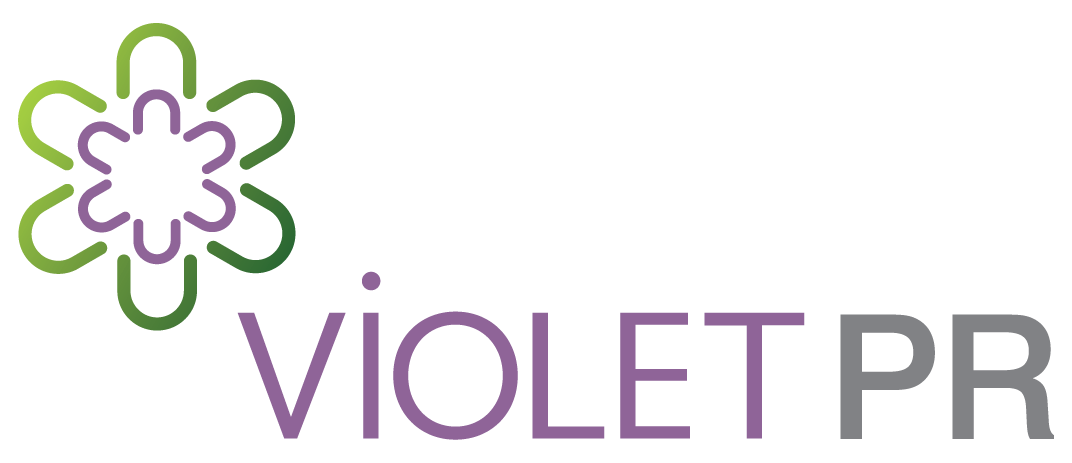5 Tips for Success for Women in Business: Q&A with April Mason, Founder and President of Violet PR
In honor of Women’s History Month, we talked with Violet PR founder and president April Mason to learn more about her career, her path to becoming an entrepreneur, and her advice for women to succeed in business.
April Mason, founder and president of Violet PR
You started working in the economic development industry in the ‘90s. Tell us what it was like for young women working in a predominantly male industry 30 years ago.
It was a very different world when I started working in the economic development industry in the ‘90s in Kansas City. The year before I started, women at my organization had just been given permission to wear pants to the office! But most days, we were still expected to wear skirts, pantyhose and heels. As a woman, I was lumped in with the assistants and secretaries, and I knew I needed to work harder than my male counterparts to prove I was capable of becoming an executive. I dressed “above my pay grade,” volunteered for extra projects, worked weekends, and took graduate classes at night to obtain a master's degree. That said, I had few role models, and many female executives seemed to act more masculine, with short hair and scarves that resembled ties.
In 1999, I met a woman executive at a PR agency who made a strong impression on me. She was confident and authentic. She didn’t try to hide her femininity and was proud to bring a different perspective to the table. I remember thinking I wanted to be like her, and within six months, I went to work for her agency in NYC. I never wore pantyhose to work again!
After decades of working at public relations firms, you started your own business. Violet PR was founded in 2010, and in 2019, the agency received national certification as a Women’s Business Enterprise. Tell us why you were ready to be your own boss and why it was important to obtain the WBE certification.
I didn’t set out to be an entrepreneur. I was a VP at an agency managing our luxury real estate division, and in late 2008-2009, business took a sharp downturn. The country was in a recession, we were losing clients and I saw the writing on the wall. I had also reached a point in my life where flexibility was something I didn’t want to compromise, as I had two young daughters.
I began interviewing at other firms, but no one was willing to allow me to work from home, even one day a week. (One firm actually rescinded an offer to me after I made the request!) In the meantime, because my firm had reduced our salaries, I began to take on clients on the side to supplement my income. I realized that starting my own firm was the solution. I cobbled together enough clients to go out on my own, and Violet PR was born.
Being certified as a Women Business Enterprise (WBE) helps promote the fact that we’re a women-owned business. It gives us a leg up in securing certain government contracts, and it enables us to be more intentional about seeking out female-led organizations as clients. It’s also been a helpful recruiting tool; many of our staff have told me they want to work for a woman-owned business.
How has the industry changed throughout the years?
Thankfully, since 2010, the pendulum has swung in favor of workers in general, with a bigger emphasis on work-life balance, mental health, and shared childcare responsibilities. The pandemic made working from home the norm rather than a perk. And many, many more women executives have broad decision-making power today.
However, the gender pay gap persists. According to Pew Research Center, women's median earnings in 2021 were about 84% of men's among those working full-time, year-round. Plenty of work remains to be done.
What advice do you have for young women in business?
Do your research, and know your worth.
When applying for a job, don’t be afraid to negotiate. You don’t have to take the first offer. As a business owner, I’ve noticed men negotiate harder for their salaries, irrespective of their qualifications. Women tend to underestimate their capabilities and still find it difficult to promote themselves. At the same time, you may still want to work longer hours in your 20s in order to separate yourself from your peers and prove yourself. It takes time to build skills!
Find a female mentor.
While any sort of mentorship will be beneficial to your career, a female mentor will be better able to understand the unique challenges you face. Finding a mentor in your office or joining a professional organization to learn from female leaders will help you develop the skills and confidence to succeed.
Use your strengths.
Women bring a lot to the table in terms of our communication skills, intuition, and ability to listen and plan. Don't be afraid to use your unique skills and personality at work!
Put in the time when you’re starting your career.
I didn’t have kids until I was 33, so I was able to spend a full decade building my career. This gave me more flexibility when I needed it, as I had the experience and contacts.
Learn to communicate with confidence.
Don’t let Imposter Syndrome stop you from advancing in your career. Women often need to exude more confidence at work to be taken seriously. Whether taking a public speaking class, assuming a leadership role in a professional development organization, or practicing before an important meeting, make sure you learn how to communicate with confidence. This can take years, but it will be worth it!

